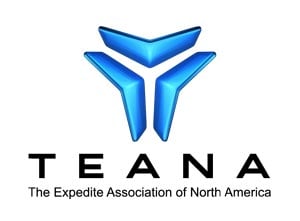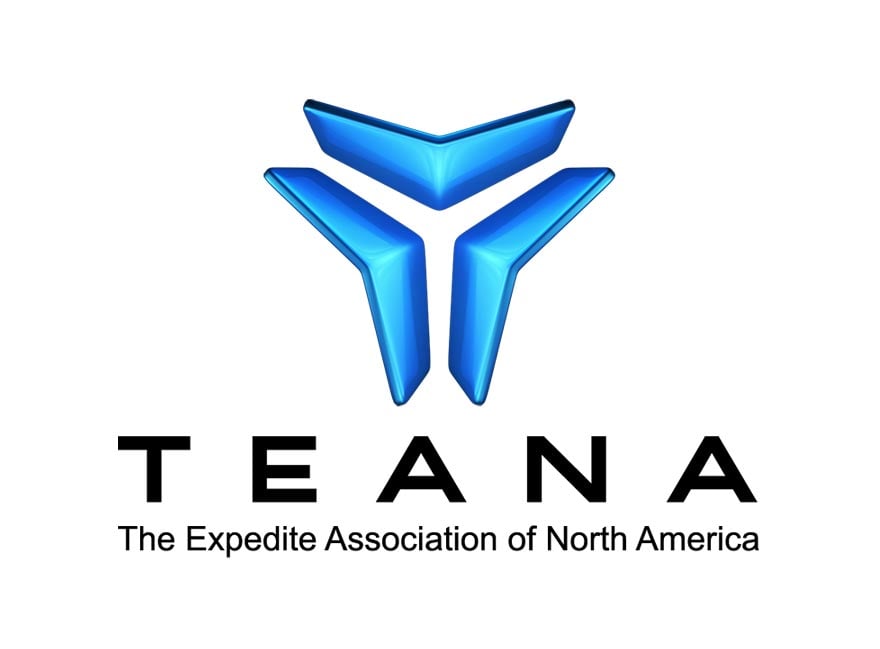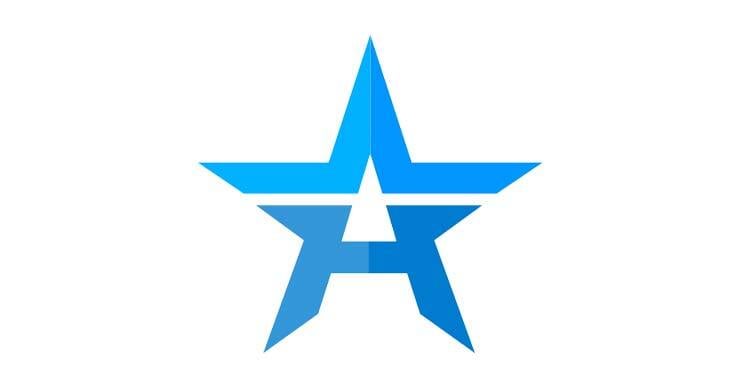
Regulatory and legislative updates for March include the FMCSA awarding $180 million in grants to promote CMV safety, finalizing a rule governing billing practices, CVSA opening nominations for driver award, the FMCSA updating ELD guidance related to cross border transportation and more.
Contents
Regulation and Enforcement
- FMCSA to award $180 million in grants to promote CMV safety
- FMC finalizes rule governing billing practices for demurrage and detention
- Truck Leasing Task Force to Hold Hybrid Meeting at MATS
- CSVA schedules International Roadcheck for May 14-16
- CVSA opens nominations for driver award
- Comment periods still open in various proceedings
- Recreational activity providers exempted from authority registration
- FMCSA updates ELD guidance related to cross border transportation
- FMCSA removes five devices from list of registered ELDs
- Owner-operator seeks ELD exemption on grounds of device cost
Legislation
Courts
Advocacy and Comment
Regulation and Enforcement
FMCSA to award $180 million in grants to promote CMV safety
As authorized by the 2021 infrastructure law, FMCSA announced the availability of more than $180 million in grants to promote commercial motor vehicle safety. The grants are open to governmental agencies, academic institutions, and other training programs and non-profit organizations. Grants are available through five discretionary grant programs:
- High Priority Innovative Technology Deployment;
- High Priority Commercial Motor Vehicle Safety;
- Commercial Motor Vehicle Operator Safety Training;
- Commercial Driver’s License Program Implementation; and
- High Priority Enforcement Training and Support.
Grant applications for fiscal year 2024 are due by 5 p.m. Eastern on April 19. The full notice of funding opportunity announcements can be found at Grants.gov. For details regarding funding amounts, application requirements, and applicant and project eligibility, visit https://www.fmcsa.dot.gov/grants. FMCSA also is hosting virtual conferences on the FY 2024 opportunities March 12-14. Recordings will be posted later. For more information, visit https://www.fmcsa.dot.gov/fy24grantfundingopportunities.
FMC finalizes rule governing billing practices for demurrage and detention
The Federal Maritime Commission has published a final rule establishing requirements governing how common carriers and maritime terminal operators bill for demurrage and detention charges. A key provision is that a demurrage or detention invoice must go to either the shipper contracting for transportation or storage of cargo or the consignee receiving the goods. Therefore, parties simply providing transportation would not receive invoices.
The rule, which was mandated by a 2022 federal law reforming ocean shipping practices, clarifies who can be billed and within what timeframe and outlines the process for disputing bills. The rule is effective May 28. It was published in the Federal Register on February 26 and is available at https://www.federalregister.gov/d/2024-02926.
Truck Leasing Task Force to Hold Hybrid Meeting at MATS
FMCSA’s Truck Leasing Task Force (TLTF) will meet in person on March 21 at the Mid-America Trucking Show in Louisville, although the meeting also will be streamed for remote attendees and participants. The meeting is scheduled for 10 a.m. to 3 p.m. Eastern. The focus of the formal portion of the meeting will be a discussion of the impact of truck leasing agreements on the net compensation of commercial motor vehicle drivers. However, the meeting also will include two public comment periods totaling approximately two hours. To register for the TLTF meeting and to view a copy of the agenda, visit www.fmcsa.dot.gov/tltf.
CSVA schedules International Roadcheck for May 14-16
The Commercial Vehicle Safety Alliance has scheduled its annual International Roadcheck intensive roadside inspection focus for May 14-16. Each year, CVSA announces a special emphasis for the event. This year, Roadcheck will focus on tractor protection systems and alcohol and controlled substance possession. Tractor protection systems include the tractor protection valve, trailer supply valve and the anti-bleed back valve, all of which might be overlooked during routine inspections, CVSA said.
CVSA opens nominations for driver award
The Commercial Vehicle Safety Alliance is accepting nominations until May 10 for its 2024 International Driver Excellence Award (IDEA). Nominees must have at least 25 cumulative years of crash-free driving in a commercial motor vehicle and a clean driving record for the past three years. Other requirements are no felony convictions; no safety-related driving suspensions in the past three years; and no driver violations in the past three years, including form and manner violations. The 2024 recipient will receive a trip to attend the CVSA Annual Conference and Exhibition, where he or she will be recognized in a session and awards ceremony, and a $5,000 prize. The IDEA is open to the entire CMV industry. For more information, visit https://www.cvsa.org/programs/idea.
Comment periods still open in various proceedings
FMCSA is still accepting feedback on several issues, including owner-operator lease agreements, commercial driver’s licensing requirements, and a study related to driver detention. The following dockets are still open for comment:
- A request that commercial motor vehicle drivers who have signed lease-purchase agreements provide the agency with copies of leasing documents and copies of documents for all other financial products associated with their work as CMV lessees. FMCSA also seeks info from CMV lessors. Comments are due March 18. For the Federal Register notice, visit https://www.federalregister.gov/d/2024-03205.
- A proposed rule to make the regulations governing commercial driver’s licenses more flexible in several areas while tightening the rules in certain other areas. Comments are due April 2. For the Federal Register notice, visit https://www.federalregister.gov/d/2024-01710.
- FMCSA’s plan for conducting a study on driver detention. Comments are due March 18. For the Federal Register notice visit, https://www.federalregister.gov/d/2024-03256.
Recreational activity providers exempted from authority registration
FMCSA amended its regulations to implement the statutory exemption from its operating authority registration requirements for providers of recreational activities. The exemption applies to motor carriers operating a motor vehicle designed or used to transport between 9 and 15 passengers (including the driver), whether operated alone or with a trailer attached to the transport vehicle, if the motor vehicle is operated by a person that provides recreational activities within a 150 air-mile radius of the location at which passengers initially boarded the motor vehicle at the beginning of the trip. In response to comments on the proposed rule, FMCSA also added "off-highway vehicle driving and riding" to the list of activities defined as recreational under the rule. For the Federal Register notice, visit https://www.federalregister.gov/d/2024-03782.
FMCSA updates ELD guidance related to cross border transportation
FMCSA has posted on its website new frequently asked questions (FAQs) regarding use of electronic logging devices in cross border transportation. The revised guidance, dated March 8, 2024, replaces FAQs that had been posted in April 2018. The FAQs and other FMCSA guidance are available at https://www.fmcsa.dot.gov/guidance.
FMCSA removes five devices from list of registered ELDs
FMCSA has removed CI ELD LOGS, CN ELD, KSK ELD, TT ELD 30, and TT ELD 1010 devices from the list of registered Electronic Logging Devices (ELD). FMCSA placed these ELDs on the Revoked Devices list due to the companies’ failure to meet the minimum requirements established in 49 CFR part 395, subpart B, appendix A. The removals are effective February 29, 2024.
Motor carriers using revoked devices must immediately discontinue their use and replace them within 60 days of the revocation. In the interim, carriers must revert to paper logs or logging software. For a list of registered and revoked ELDs, visit https://eld.fmcsa.dot.gov/List.
Owner-operator seeks ELD exemption on grounds of device cost
FMCSA is requesting comments by April 1 on an application from owner-operator Arbert Ibraimi for a 12-month exemption from the electronic logging device requirement on the grounds that as a new business he has limited funds to support the purchase of an ELD for his lone commercial motor vehicle. Ibraimi told FMCSA that he would use the funds saved from not implementing an ELD to monitor the safety of operations and to incorporate safety management controls. For the Federal Register notice, visit https://www.federalregister.gov/d/2024-04307.
Legislation
House and Senate bills would void DOL rule on worker classification under FLSA
Rep. Kevin Kiley (R-California) and Sen. Bill Cassidy (R-Louisiana) have introduced joint resolutions of congressional disapproval (H.J. Res. 116; S.J. Res. 63) of the Department of Labor (DOL) final rule on worker classification under the Fair Labor Standards Act (FSLA). The rule, which took effect on March 11, overturns a rule finalized during the Trump administration that had designated two “core factors” – control over work and opportunity for profit or loss – as key in weighing worker classification. Meanwhile, various groups are challenging the DOL rule in the same federal court that struck down the Biden administration’s effort to withdraw the Trump-era rule in 2021. (See article below.)
A joint resolution of congressional disapproval is a mechanism for voiding a rule implemented by the executive branch. However, even if the resolutions are passed by both the House and Senate, they can become law only the president signs it or Congress overrides a veto – neither of which is feasible given the current Congress or administration. Congress last year passed a joint resolution to block new environmental regulations on commercial trucks, but President Biden vetoed it.
The House bill has 54 co-sponsors. The Senate bill has 32 co-sponsors. For more information on H.J. Res. 116, visit https://www.congress.gov/bill/118th-congress/house-joint-resolution/116. For more information on S.J. Res 63, visit https://www.congress.gov/bill/118th-congress/senate-joint-resolution/63.
Courts
Groups sue to overturn DOL rule on worker classification under FSLA
The Coalition for Workforce Innovation (CWI) and various other groups, including the American Trucking Associations and the U.S. Chamber of Commerce, have filed an amended complaint in a federal court in Texas challenging the Department of Labor’s new rule regarding the test for classifying employees and independent contractors under the Fair Labor Standards Act. The rule, which replaced a DOL rule finalized during the Trump administration, took effect on March 11. In a related action, resolutions of congressional disapproval have been introduced in both the House and Senate. (See article above.)
In 2022, CWI and other parties were successful in obtaining a ruling from the same Texas federal court that DOL’s initial withdrawal of the Trump-era rule violated the Administrative Procedure Act for various reasons, including a finding that the action “left regulated parties without consistent guidance regarding the proper classification of workers” under FSLA. In the amended complaint, the groups argue that the latest rule “fails to address (and will only add to) the confusion over the proper classification of independent contractors, and will irreparably harm not just companies employment independent contractors nationwide, but the workers themselves.”
Advocacy and Comment
The issues set forth above include litigation and proposed congressional action which demonstrates the breadth and scope of the critical labor, safety, and fraud issues facing the trucking industry, owner operators, and small businesses in particular. In the election year, especially one as dysfunctional as this, little dispositive legislative or judicial action can be predicted, yet the above shows the opportunity and the need for legislative reform. To follow is information concerning FMCSA’s attendance at MATS to be followed up by the TCA’s Annual Convention the following week in Nashville in which these key issues will again be addressed. Hopefully readers attending MATS or TCA will respond to the request for support.
Are you Coming to MATS?
As noted, the Mid America Trucking Show will be held in Louisville March 21-23. The FMCSA regularly attends and sponsors open sessions to present its upcoming initiatives. This year, it is scheduled to address its regulatory agenda with a particular focus on the big issues affecting the independent contractor model, a new proposed safety fitness rule using artificial intelligence to augment SMS, data integrity, fraud prevention, and proposed changes to the new carrier application.
In separate sessions sponsored by CDL Drivers Unlimited, the following transportation professionals will offer their insight on these important issues and more:
Jim Heffernan with CDL Drivers Unlimited will start things off by discussing how stakeholders in the trucking industry can become involved and participate in advocacy toward the goal of competing on a level playing field.
The future of the independent contractor model which can effect approximately 700,000 small businesses will be analyzed and discussed with Bruce Lundegren, Assistant Chief Counsel for Safety, Security, and Transportation with the SBA Office of Advocacy, from the perspective of owner operator rights as small businesses protected by federal statutes and remedies.
The proposed reboot of SMS and the use of artificial intelligence will be discussed by transportation attorney Henry Seaton in the context of the FMCSA’s obligation to vet all carriers for safety compliance purposes and issue fair and objective audits.
FMCSA’s inability to issue safety ratings to new and small carriers and the prejudice suffered by new and small carriers who the agency does not vet will be discussed by Tommy Ruke with the Motor Carrier Insurance Education Foundation, an expert in insurance pricing, and others.
Rick Gobbell, former FMCSA director and a safety expert who teaches classes for enforcement officers, will present an effective and alternative method for FMCSA to reform its safety fitness rules and comply with Congress’ requirements that all carriers be vetted.
Dale Prax of Freight Validate will address the issue of fraud in trucking. In this session, proactive fraud prevention policies will be discussed with special attention on how the FMCSA’s proposed revision of the new authority application process can be modified to detect identifiable frauds before new applicants are authorized to operate.
The MATS format and the FMCSA’s participation will allow for open and candid discussions including the presentation of alternative proposals which can better meet the requirements of the National Transportation Policy. If you are coming, be prepared with questions for both the Agency and the sponsored breakout sessions. Your endorsement, financial support, and comments are needed. Please email ASECTT at asectt@gmail.com about the agenda items of greatest concern to you at MATS.
Finally, there are other judicial and legislative issues discussed above that are pending and related to the administrative agenda involving safety, fraud, the future of the owner operator model and administrative reform. Readers with questions involving these topics are welcome to submit them to the email above for discussion in Louisville as well.
Our Process lorem ipsum dolor sit amet, consectetur adipiscing elit. Nunc vulputate libero et velit interdum, ac aliquet odio mattis.
Value prop lorem ipsum
Ut posuere hendrerit nisl metus neque. Facilisis quis adipiscing a molestie. Tempor turpis tincidunt nulla diam in. Nec etiam ut neque placerat mauris nulla. Semper hendrerit at urna orci in faucibus sit lacus. Tincidunt fermentum consequat.
SEE OTHER CITIES WE SERVICE IN THIS STATE
Value prop lorem ipsum
Ut posuere hendrerit nisl metus neque. Facilisis quis adipiscing a molestie. Tempor turpis tincidunt nulla diam in. Nec etiam ut neque placerat mauris nulla. Semper hendrerit at urna orci in faucibus sit lacus. Tincidunt fermentum consequat.
SEE OTHER CITIES WE SERVICE IN THIS STATE
Related Blog Posts

Regulatory and Legislative Update - July 2023
Contents Regulation and Enforcement FMCSA close to seeking input on safety fitness determination regulations FMCSA takes steps to address counteract fraudulent carriers Final guidance issued on definitions of brokers and bona fide agents Truck Leasing Task Force holds inaugural session FMCSA plans to address mandate concerning carriers’ knowledge of regulations NHTSA, FMCSA plan to mandate automatic braking systems on new trucks CARB, truck...

Regulatory and Legislative Update - June 2024
Contents Regulation and Enforcement FMCSA to hold listening sessions on safety fitness procedures FMCSA outlines plan for updating registration process FMCSA to hold public meeting on fees charged for towing and recovery UCR fees to rise in 2025 after two years of decreases FMCSA rejects SBTC petition related to broker role in executing cargo claims Washington high school seeks age relief on commercial permits Company seeks exemption to allow...

Regulatory and Legislative Update - January 2025
Contents Regulation and Enforcement FMCSA expands crash preventability review criteria FMCSA to highlight upcoming SMS changes in January 16 webinar Compliance date pushed back for certain provisions of broker/forwarder rule Trump labor pick, port dispute stance raise questions about labor policy FMCSA proposes to waive hazmat endorsements for certain limited operations Company denied exemption for limited interstate driving by younger drivers...

Regulatory and Legislative Update - December 2020
Contents FMCSA has extended its emergency declaration regarding enforcement relief for drivers and carriers involved in COVID-19 response through February 28, 2021 and has expanded the declaration to specifically include vaccines and related products within the coverage of the declaration. For details, visit www.fmcsa.dot.gov/COVID-19. Regulation and Enforcement FMCSA declares preemption against Washington’s meal and rest break rules Interim...

Regulatory and Legislative Update - April 2024
Regulatory and legislative news for April 2024 includes the FMCSA renewing consideration of knowledge/proficiency exams for carriers and brokers, the FMCSA inviting comments on its plan for a new online registration platform and Hawaii seeking exemption on student transportation options. The FMCSA is also set to revise a younger driver pilot program. Contents Regulation and Enforcement FMCSA renews consideration of knowledge/proficiency exams...

Regulatory and Legislative Update - February 2024
Regulatory news for February 2024 includes the FMCSA eyeing June 2025 for proposed rule on safety fitness procedures, the FMCSA asking drivers to provide copies of lease-purchase agreements, the FMCSA proposing to revise various CDL regulations, updates of medical advisory criteria and more. Contents Regulation and Enforcement FMCSA eyes June 2025 for proposed rule on safety fitness procedures Groups question relevance of studies to safety...

Regulatory and Legislative Update - May 2020
Contents For the latest FMCSA guidance related to COVID-19, visit https://www.fmcsa.dot.gov/COVID-19. Regulation and Enforcement FMCSA relaunches Crash Preventability Program NPRM would downgrade CDLs, CLPs for positive drug tests Safety technology firm seeks HOS relief for drivers using its systems SBTC seeks reconsideration of broker bond exemption denial FMCSA again denies SBTC’s ELD exemption bid Pipeline services company seeks ELD exemption...

Regulatory and Legislative Update - May 2023
Contents Regulation and Enforcement DOT to allow oral fluids testing for controlled substances FMCSA forms task force on truck leasing FMCSA says states may grant CDLs or CLPs to Mexican citizens under DACA program California mandates zero-emissions vehicles by 2042 Comment periods closing soon on SMS changes, crash preventability program Propane industry denied broad HOS exemption Alaskan ice road school seeks skills test exemption FMCSA renews...

Regulatory and Legislative Update - November 2020
Contents The emergency declaration regarding enforcement relief for drivers and carriers involved in COVID-19 response is in place through December 31. For details, visit www.fmcsa.dot.gov/COVID-19. Regulation and Enforcement Coalition urges DOL to affirm that owner-operators are independent contractors FMCSA seeks nominations for Motor Carrier Safety Advisory Committee Comment period extended until November 18 on broker transparency petitions...

Regulatory and Legislative Update - October 2021
Contents Regulation and Enforcement DOT seeks input on ‘supply chain resilience’ in freight and logistics FMCSA rule to link clearinghouse data to CDL Reporting requirement for FMCSA COVID declaration kicked in October 1 FMCSA renews steel company’s exemptions from HOS and securement rules Oak Harbor Freight Lines seeks exemption on driver training instructors Keep Truckin seeks windshield exemption Legislation Infrastructure bill remains in...

Regulatory and Legislative Update - January 2021
Contents FMCSA has modified various guidance related to COVID-19. For the latest, visit www.fmcsa.dot.gov/COVID-19. Regulation and Enforcement DOL finalizes rule to clarify independent contractor status FMCSA proposes to revise HOS guidance on yard moves Final rule announced to allow third-party CDL examiners to test their own trainees FMCSA implements FAST Act requirements on rules and petitions Annual inspections of rear impact guards proposed...

Regulatory and Legislative Update - March 2023
Contents Regulation and Enforcement FMCSA extends deadlines in broker proceedings, sets March 31 session Earl Adams named FMCSA deputy administrator; Van Steenburg to retire as CSO Employers to be notified of drivers’ clearinghouse status changes FMCSA issues enforcement policy on actual knowledge of substance violations Pitt Ohio seeks relief from CDL requirement of younger driver program Autonomous vehicle firms seek relief concerning warning...
WHAT IS HOT SHOT TRUCKING? AKA HOTSHOT TRUCKING
Modern business is all about strict timelines. Whether your field is manufacturing, extraction, retail, or research and development, your operations are bound to rely on activities that operate in tandem. The most minor of supply shortages can throw these activities off, potentially costing you thousands of dollars just for a few hours' delay. Success thus hinges on your ability to right the ship as quickly as possible after a supply shortage arises.
Industries We Serve
Modern day hot shot trucking provides the speed and exclusivity you need to meet the most demanding and time-sensitive shipping requirements. We use every resource, avenue, and channel available to ship your freight by ground or air. Designed specifically to address supply and distribution problems that arise without warning, hotshot trucking tactics involve coordinating a network of carriers in a variety of locations. By calling on the vehicles closest to your supply or distribution points, hotshot brokers can fill any sudden gaps in your supply network almost as soon as they happen. This minimizes the disruption to your business and allows you to quickly return to ordinary operations, weathering the storm without skipping a beat.
Automotive
The automotive supply chain already has significant challenges. Don’t let malfunctioning equipment stop the production line. Step on the gas with HotShotTrucking.com’s suite of services that will get you back in the fast lane. With HotShotTrucking.com, companies are devising shipping strategies to swiftly deliver critical parts and equipment — whether it's ground expedite service with sprinter vans, box trucks and 53-foot tractor trailers or air freight and air cargo.
Aviation & Aerospace
Every moment a commercial airliner sits on the ground, it costs an airline money. Expedited freight services by HotShotTrucking.com can get you back in the air with prompt delivery of parts and equipment throughout North America. We are equipped with the expertise to navigate the complexities of shipping jet engines and other types of loads, and our network of hot shot drivers has extensive experience transporting aviation assets.
Construction
One shipping delay can snowball and cause delays throughout your entire project. You need an experienced 3PL provider who understands the construction industry and has the logistical reach to deliver your freight on time, anywhere. That 3PL partner is HotShotTrucking.com. Whether in the air or on the ground via truck and trailer, we can connect companies to expedited freight services for the prompt delivery of parts and equipment throughout North America.
Mining & Metals
From cranes to chemicals to excavators to conveyor belts, HotShotTrucking.com has the experience and industry know-how required for shipping sensitive, oversized, and hazardous equipment. Third-party hot shot trucking and logistics providers such as HotShotTrucking.com specialize in devising and implementing innovative shipping solutions, ensuring mines can swiftly return to operation. We’ll pick up your shipment, deliver it to the airport and receive it at the other end – providing hand-carried service as necessary or required.
Manufacturing
Every moment a manufacturing facility or factory sits idle costs a company money because of the high costs involved. With many manufacturers building to only just-in-time production rates, any disruption threatens parts and vehicle inventories. This is where the speed and expertise of freight services from HotShotTrucking.com can make a difference throughout the entire manufacturing supply chain. We do all the logistical legwork to find the optimal solution for your job, whether it's an exclusive air charter or expedited ground shipping.
Telecommunications
From servers to cell towers, information, voice, and data must flow to keep businesses, production, and the public online and connected. When equipment goes dark, depend on HotShotTrucking.com to get your systems flashing green again. This is where the speed and experience of trucking and freight services from HotShotTrucking.com can help. Our hot shot truck network excels at the prompt delivery of parts and equipment throughout North America.
Oil & Gas
The oil and gas industry faces challenging conditions in offshore and onshore oil rigs, often in remote locations with limited infrastructure. Don’t let oil pumps or pipelines sit idle waiting for equipment. By having the right plans, parts, people, and logistics partner like HotShotTrucking.com, you can effectively mitigate plant or pump downtime, unscheduled disruptions, and equipment failures.
Cost of Urgent Shipping
Which of our specialized shipping services best fits your needs?
Blog and Resource Center
How AirFreight.com Solved a PGA Tour Shipping Emergency
Learn how AirFreight.com located a lost shipment and helped save the PGA Golf Tour.
How AirFreight.com Saved The Farm By Solving A Major Shipping Delay
Learn how we saved a Montana-based artisanal farm thousands of dollars by expediting a shipment of perishable goods.
Expedited Shipping Vendor Comparison
We’ve done the research for you. This vendor comparison sheet breaks down how AirFreight.com stacks up against the competition.

talk to an expeditor now
Get a Quote in Minutes for Your Time-Critical Freight Needs
GET A QUOTE
